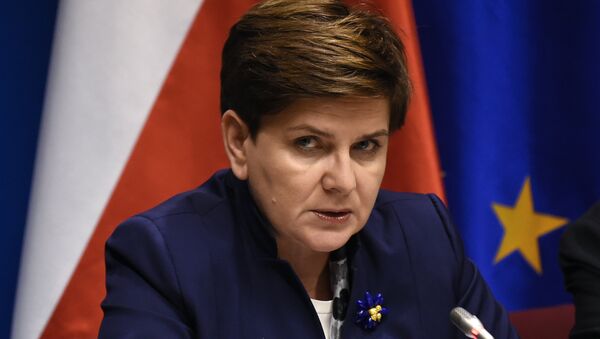The recently-elected Warsaw Government, led by Prime Minister Beata Szydło whose Law and Justice (PiS) party beat the incumbent Civic Platform (PO) party, has been accused inside and outside Poland of making changes to the 'independent' constitutional court in an effort to make it more difficult for opposition parties to challenge new laws.
Since coming to power, the Warsaw administration has eased out the head of the anti-corruption agency, announced plans to overhaul public media and limited opposition oversight of its surveillance services, which many believe are unconstitutional moves.
Media Freedom and Democracy
But it has also drawn protest over its plans to directly appoint the heads of the public broadcasters. A group of international journalists this week launched a challenge at the Council of Europe over the new law — passed hurriedly before Christmas by the new Warsaw administration — that gives it the power to directly appoint the heads of public broadcasters.
#Poland is in weird hands #Duda and Company look like frustrated people with a lot of power…bad combination, not very promising
— Diego Giorgio (@dgiorgio73) January 7, 2016
The complaint — signed by the Association of European Journalists (AEJ) and the International Federation of Journalists (IFJ) and others — says that the media law will threaten the independence of the media.
"The proposed arrangements represent a shift to direct government control over the strategic and editorial stance of the public broadcasters which is wholly unacceptable in a genuine democracy," the letter states," the letter said.
.@TJagland writes to #Poland's Pres. Duda on human rights concerns raised by new media law. https://t.co/rRbd6lQGqe pic.twitter.com/T9nmhJWMVT
— Council of Europe (@coe) January 6, 2016
The Council of Europe is investigating the media complain, while the European Commission is investigating whether Warsaw is in breach of the commission's 'rule of law mechanism' which seeks to is rein in EU member governments whose policies and legislation are seen to pose a "systematic threat" to EU values. Although the mechanism was passed last year, it has never been invoked, so this could be the first time is tested on a member state — covering both media freedom and the health of democracy.
The commission has set a date for a meeting of commissioners — January 13 — to discuss the rule of law mechanism, which could eventually result in the suspension of voting rights in the Council of the European Union




